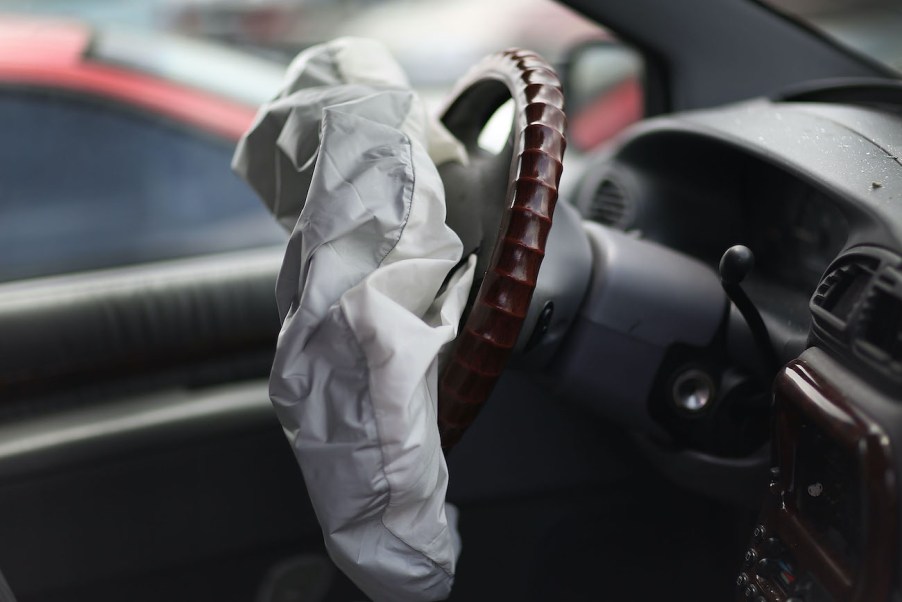
NHTSA Issues ‘Do Not Drive’ Advisories for Older Honda and Acura Models
It looks like the Takata airbag recall debacle is rearing its ugly head again. If you don’t remember, this was when tens of millions of cars were recalled due to faulty airbag inflators. It looks like history is repeating itself again as the National Highway Traffic Safety Administration (NHTSA) recently warned the public to refrain from driving older Honda and Acura models.
Which Honda and Acura models are affected and why?

The reason for the recall is that the affected Honda and Acura models are equipped with Takata Alpha driver-side inflators, which have a 50% failure rate in minor collisions. The recall notice sent out by the NHTSA went on to mention, “If the inflators rupture, the metal fragments ejected toward the driver’s face could kill them or leave them with devastating or life-altering injuries.”
Approximately 8,200 Acura and Honda vehicles are still equipped with the Alpha inflators, and it’s critical that they get replaced now. Here is a rundown of the affected models:
- 2001-2002 Honda Accord
- 2001-2002 Honda Civic
- 2002 Honda CR-V
- 2002 Honda Odyssey
- 2003 Honda Pilot
- 2002-2003 Acura 3.2 TL
- 2003 Acura 3.2CL
Will the recall solution cost the owner money?

No. According to the NHTSA, every vehicle under the recall qualifies for a free airbag repair. Drivers who want to see if their car is affected by the recall can visit the Honda Takata Recall information website or call 888-234-2138 for more information.
Should I drive my 2001-03 Acura or Honda if the recall fix has not been done?
Technically, no. Considering the gravity of the recall issue, the NHTSA recommends not driving your car if it still has the recall open. Instead, make an appointment with your local dealership and only drive your car to the appointment when needed. Although it may be a minor inconvenience in the interim, it’s better than the possibility of getting into an accident.
Is it safe to buy a 2001-03 Honda or Acura that is on the recall list?

Yes, as long as the recall is done before the title changes owners. It’s worth noting that dealerships must have all recalls done on a car before selling it. However, we recommend checking any car’s vehicle history report before purchasing it, whether it’s from a dealership or a private party seller.
Also, don’t forget to have a pre-purchase inspection on any used car you intend to purchase. Some unscrupulous sellers will hide hidden repairs or damages from minor accidents and negligent car care. In that case, It’s important to get the car checked out by a professional before signing any contracts.
If you plan to sell a car on this list in a private-party sale, it’s important to have the recall done beforehand. Failing to do may cause harm to the new owner despite the fact that there are no known restrictions for private party sales with open recalls.
After having the recall work done, drivers can safely drive their cars.





